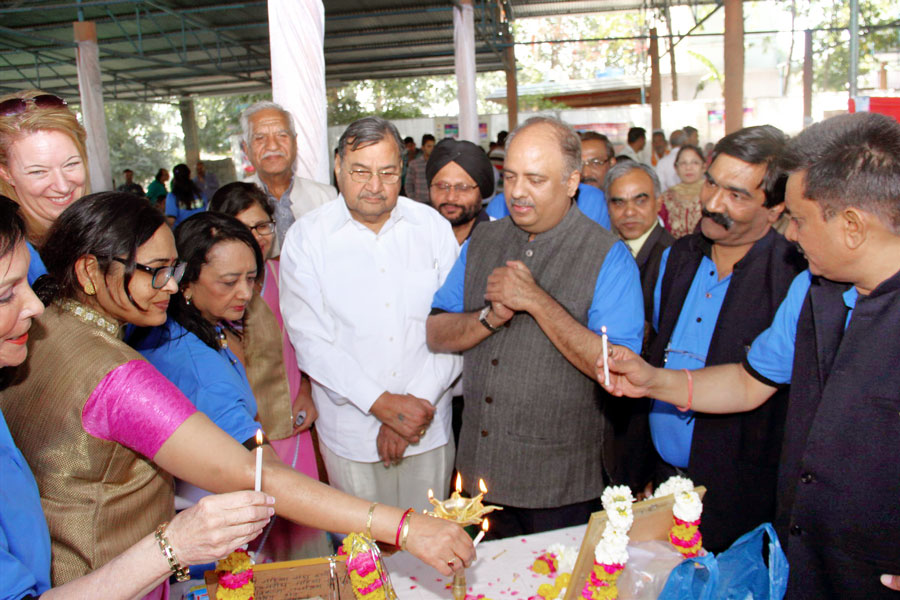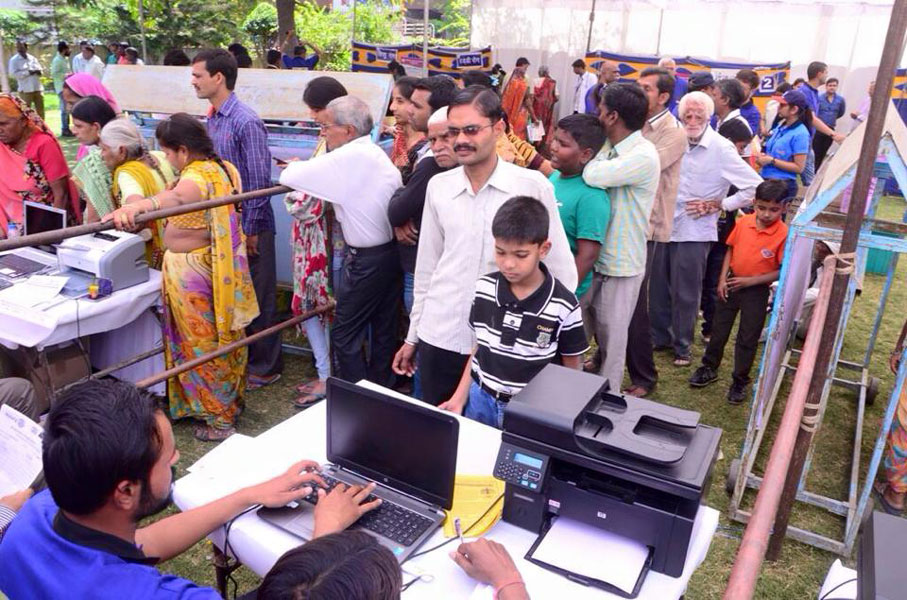RI District 3040, in association with National Health Mission and TRF, conducted the RAHAT medical camp at 25 locations in and around Indore, treating about 80,000 patients. PRID Shekhar Mehta, Board member of the RFHA (Rotary for Family Health and AIDS Prevention), inaugurated the three-day camp.

PDGs Ravi Prakash Langer and Nitin Dafria, Chairman and Secretary respectively, of the RAHAT camp, ensured enough publicity to reach a maximum number of people, and proper systems were in place for its smooth functioning.
The main focus of these camps was maternal and child healthcare. Doctors and specialists provided a series of health awareness sessions focusing on nutrition, hygiene and birth control measures. Nutrition kits were also distributed and mothers were sensitised about malnutrition. Vaccination for measles, malaria, polio and pneumonia were given to children.
Artificial limb fitment camps were conducted at five different places. The youngest beneficiary was Kiran Yadavi (10), who was delighted to receive her new arm. “It will help me with my school chores and now I can pack my bag easily,” she said. The LN-4 arms were provided by Allen Meadows Prosthetic Hand Foundation, USA. The health camp sites saw higher number of hypertension, diabetes, anaemia, cataract and breast cancer patients. The screened patients were referred to hospitals in Indore for follow-up.
“This has been a great partnership experience, focusing on reaching the community’s most remote regions,” said DG Sanjeev Gupta. Despite the development in the healthcare sector, reaching majority of the people from far-flung areas to access good medical care is a big challenge, and Rotary is bridging the gaps. He lauded the clubs, team of doctors, paramedic staff, Rotaractors, Interactors, Innerwheel members and volunteers who ensured that the proceeding at the camps went on smoothly.
Marion Bunch, Founder and CEO, RFHA, who travelled from US to participate in the camp said, “The programme and the Rotarians really exceeded our expectations. We were impressed not only with the big sites, but also the specific systems you put into place.” She also noted that the entire process — right from when the beneficiary walks into the camp, fills out the registration form, gets a diagnosis by a general doctor, proceeds to a specialist, etc — is comprehensive.






